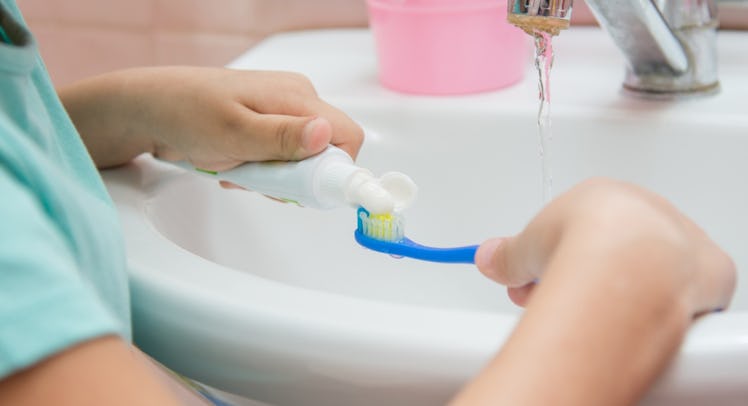An 11-Year-Old Girl Died From an Allergic Reaction to Toothpaste
Here's what parents need to know.

A California mom is warning other parents after her 11-year-old daughter died from an allergic reaction to her toothpaste. Monique Altamirano said Denise Saldate, who had a severe dairy allergy, was accidentally prescribed toothpaste with a milk-derived protein.
On April 4, Denise’s dentist recommended that she start using the MI Paste One brand of medicated toothpaste to strengthen her tooth enamel. “I did not think to look at the product ingredients,” Altamirano told Allergic Living, adding that Denise, her youngest of four daughters, “was just excited to have her special toothpaste.”
When Denise went to brush her teeth with the new toothpaste, Altamirano said that her lips started turning blue and that she told her mom she couldn’t breathe. After Altamirano called 911, she gave Denise both her asthma inhaler and her epinephrine pen, but neither helped stop the reaction. Her daughter passed away in the ambulance on the way to the hospital.
Altamirano explained that the particular brand of toothpaste they had been given contained Recaltrant, an ingredient that’s made from cow’s milk, which triggered the anaphylactic shock.
And while Denise’s tragic death is frightening, it’s also very rare, according to experts. Dr. David Stukus, a pediatric allergist and associate professor at Nationwide Children’s Hospital, told CNN that he’s never seen a case like this. “By and large, the type of food and the amount of food is not nearly enough to cause any reaction in the vast majority of people with food allergies,” he said, explaining that in most instances like Denise’s, the children have another underlying health issue that causes the abnormally severe reaction.
However, Altamirano urges parents to always use caution. “Read everything. Don’t get comfortable, just because you’ve been managing for several years,” she said to Allergic Living. “You can’t be embarrassed or afraid to ask and ensure that ingredients are OK. Be that advocate for your child.”
This article was originally published on